Rituparno’s lens: Masterful storytelling and conversations on human relationships

Rituparno Ghosh, a luminary in Indian cinema, is a name that echoes courage and resilience.
Essentially, Rituparno defined themself as Bengali, highlighting the language as an identity where pronouns and verbs do not disclose the gender of those referred to. To honour the late director's identity, the pronouns they/them will be employed when referring to them.
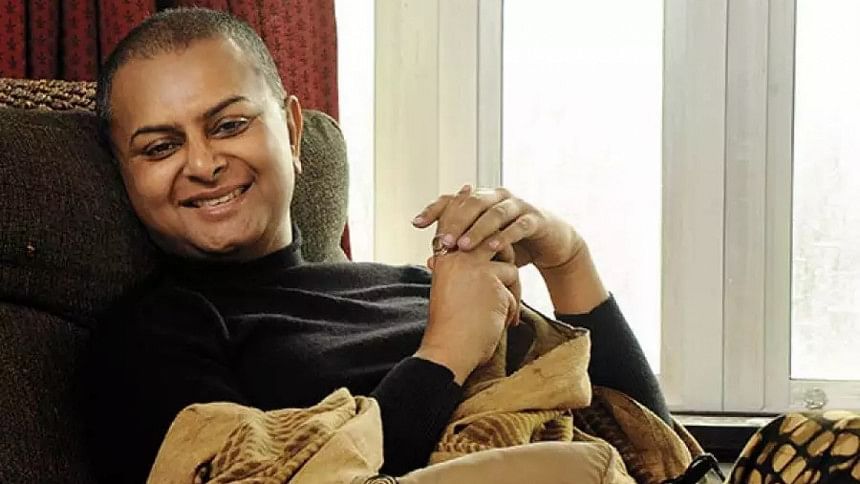
Rituparno Ghosh was a visionary filmmaker who embraced complexity and celebrated the complexities of human existence. Their body of work, a reflection to their artistic brilliance and unyielding spirit, dared to explore the uncharted territories of sexuality, identity, and norms in a society that often shied away from such discussions.
Ghosh's cinematic journey is celebrated for its boldness and willingness to explore themes that were, at the time, considered unconventional. They possessed a remarkable ability to portray the intricate web of human relationships through their films. Their audacious storytelling extended beyond the surface as Ghosh expertly crafted narratives that explored the deep understanding of human emotions. Their characters were not caricatures; they were individuals navigating the complexities of multidimensional human relationships and the emotions associated with them.
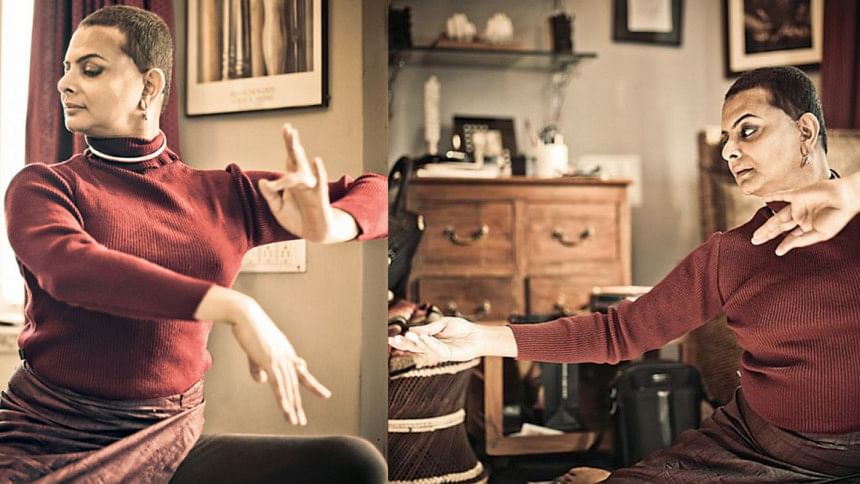
Rituparno Ghosh was not only a master of capturing the complexities of human relationships but also had an uncanny knack for portraying table conversations with a depth that is rare in cinema. In their films, they used these moments around the dining table to reveal character depths, convey unspoken emotions, and accentuate the narrative's themes.
As we pay tribute to the 'bird of dusk,' let's reflect on some of their films that explore everything beyond conventional, in all its vibrant hues.
Raincoat
"Raincoat" is an exquisite exploration of love, longing, and missed opportunities. Based on O Henry's short story "The Gift of the Magi", the film was released in 2004. The narrative of "Raincoat" is deceptively simple yet profoundly moving.
Ghosh's portrayal of the protagonists, played by Aishwarya Rai and Ajay Devgn, is a masterclass in subtlety. The film's confined setting of a rainy afternoon becomes a metaphor for the characters' stagnant lives. Through their conversations and shared memories, Ghosh unveils the layers of their past relationship and the unspoken desires they still harbour.
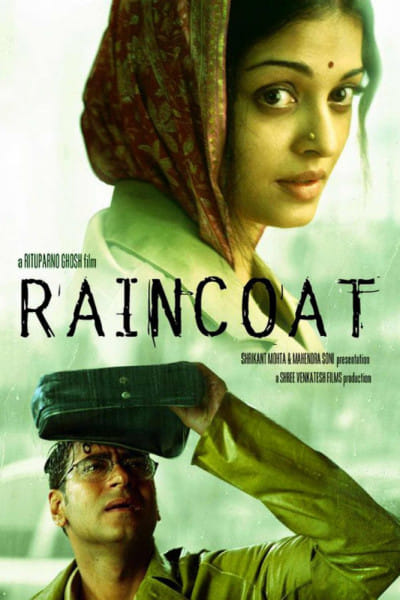
The film's brilliance lies in its ability to convey complex emotions through subtlety and restraint. Aishwarya Rai Bachchan delivers a standout performance as Neeru, capturing the essence of her character's quiet strength and hidden vulnerability. Ajay Devgn, in one of his more understated roles, complements her performance beautifully, portraying Manu as a man burdened by guilt and remorse.
Rituparno Ghosh's direction and screenplay demonstrate their mastery in depicting human emotions. They use silence and unspoken words to convey the characters' feelings effectively. The film's music, composed by Debajyoti Mishra, adds to the melancholic atmosphere, enhancing the emotional impact of the narrative.
The raincoat, a simple yet powerful symbol, represents the protective façade people wear to shield themselves from vulnerability. Ghosh's lens captures the longing in every raindrop, emphasising that the most profound emotions often remain unspoken.
Ghosh's portrayal of table conversations showcases their meticulous attention to detail and ability to extract profound meaning from seemingly ordinary moments. Through the nuances of dining scenes in their films, Ghosh adds layers of depth to their characters and stories. These moments not only enhance the narrative but also offer a unique lens through which we can understand the intricacies of human relationships and the unspoken emotions that bind us all.
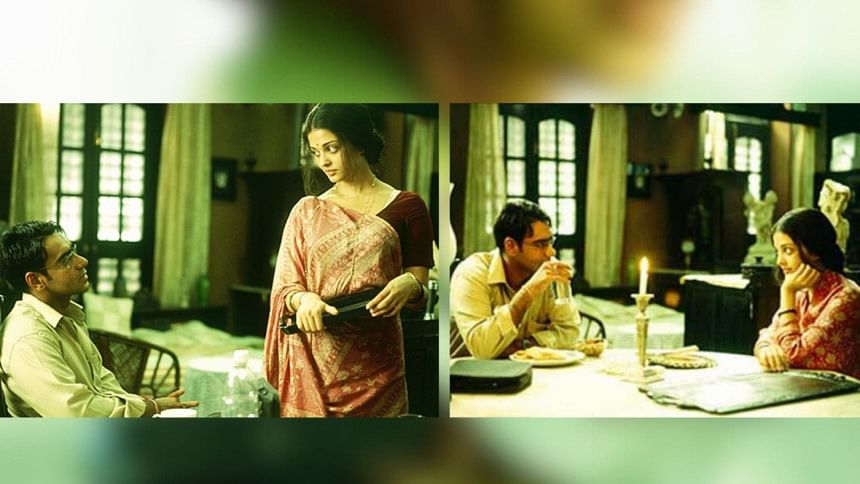
In "Raincoat", the table becomes a stage for rekindled memories and unspoken desires. Ghosh's camera focuses on the meticulous details of the meal preparation, the clinking of cutlery, and the hesitant pauses in conversation. As Aishwarya Rai and Ajay Devgn sit across from each other, their shared meal becomes a metaphor for the connection they once had and the distance that has grown between them. The way they handle the food, the awkward laughter, and the subtle glances are all masterfully choreographed by Ghosh to convey the bittersweet essence of their relationship. Every bite and sip is laden with unexpressed longing, creating an atmosphere of exquisite tension.
Chitrangada (The Crowning Wish)
The film "Chitrangada", both in its narrative and cinematic style, offers a fresh and thought-provoking take on the themes of identity, gender, and societal expectations. Released in 2012, the film is a modern rendition of identity and acceptance, where Ghosh skillfully adapts Rabindranath Tagore's play to address contemporary issues surrounding sexual identity and acceptance.

The film centres around Rudra Chatterjee (Khokon), played by Rituparna Ghosh themselves, a dancer and choreographer. The story explores the journey of Rudra, who, perhaps would be best to say, does not identify as a cisgender man yet yearns to experience fatherhood.
One of the film's most significant strengths is its nuanced exploration of the complexities of human emotions. Chitrangada's journey is not just about the struggle with the character's identity but also about the search for love and acceptance. Rudra's relationship with Partha, played by Jisshu Sengupta, is beautifully depicted, emphasising the importance of unconditional love in overcoming societal prejudices.
Ghosh's portrayal of "Chitrangada" is deeply moving, highlighting the challenges and emotional turmoil that transgender individuals often face. The film effectively captures the struggle between self-acceptance and societal expectations, particularly in a cultural context where traditional norms and family values hold significant influence.
Moreover, Ghosh's direction is commendable. They use vivid, aesthetically pleasing visuals to convey the emotional states of the characters. The dance sequences, in particular, are stunningly choreographed and serve as metaphors for Chitrangada's evolving sense of self.
"Chitrangada" also explores the theme of self-realisation. Rudra's transformation from a hesitant, self-conscious individual into a confident, self-assured version is a powerful message about the importance of embracing one's true self. The character arc of Rudra resonates not only with transgender individuals but with anyone who has ever struggled with self-identity and societal expectations.
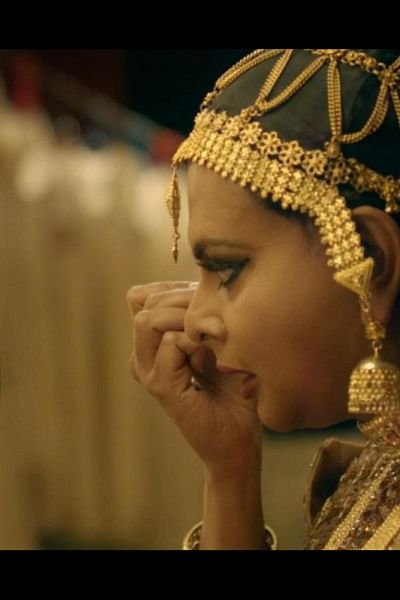
The table conversations in "Chitrangada" take on a unique significance as they mirror Rudra's internal struggle and the challenges Rudra faces in reconciling their true selves with societal expectations.
On the one hand, there's the formal, traditional table where Rudra dines with their conservative family, conforming to their expectations of Rudra. The table settings, the polite conversation, and the carefully chosen words at these meals portray Rudra's need to conceal their true identity to maintain family harmony.
Conversely, there are intimate and unguarded table conversations with Rudra's partner, Partha. These scenes reveal their deep emotional connection and their unspoken yearning for acceptance and understanding. The shared meals become a sanctuary where Rudra embraces authentic self, free from judgment and societal norms.
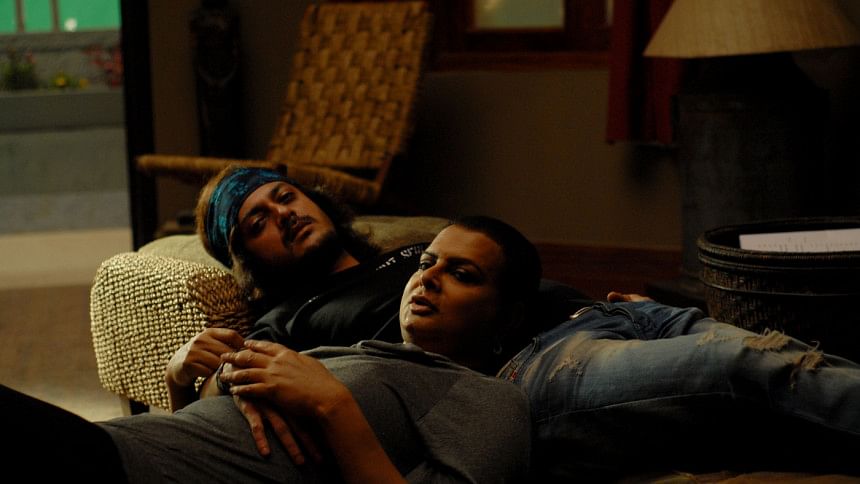
The film also challenges traditional gender norms and stereotypes. It questions why society insists on labelling and categorising individuals based on their gender and appearance. By portraying Chitrangada as a multi-faceted character with both masculine and feminine qualities, the movie encourages viewers to embrace the idea that gender is not a fixed binary but a spectrum.
Unishe April

In "Unishe April", Ghosh explores the intricate mother-daughter relationship. Released in 1994, the film depicts the strained bond between a renowned dancer and her daughter, who resents her mother's dedication to her art. Rituparno Ghosh uses the backdrop of classical dance to symbolise tradition and the clash between generations.
Through heartfelt dialogues and emotional confrontations, Ghosh unravels the complexities of the relationship amongst the characters. The film beautifully portrays how love and understanding can bridge even the widest generation gap.
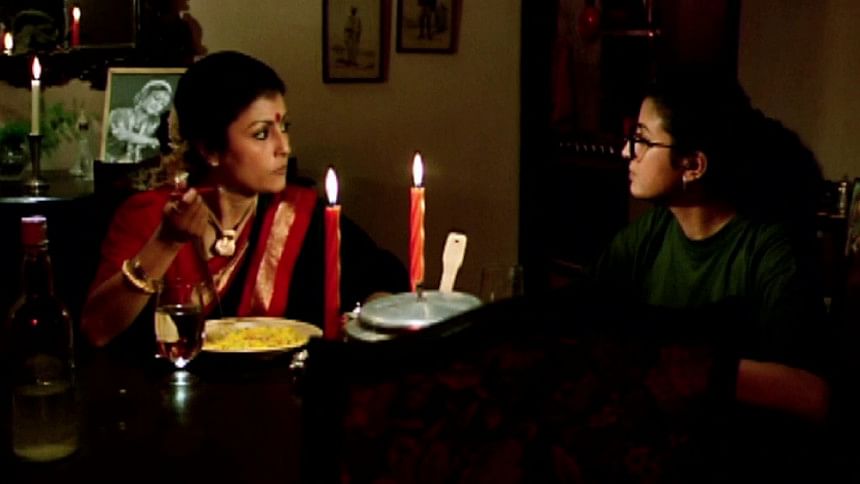
In this cinematic production, Ghosh uses table conversations to highlight the generational divide between the mother and daughter. The tension is palpable as they share meals together. The clashing of their differing worldviews is mirrored in their contrasting dining habits and preferences. The mother's traditional choices clash with the daughter's modern sensibilities, and Ghosh captures this conflict through the selection of dishes and the way they are presented. The dining table becomes a microcosm of their larger relationship, where every meal is a subtle battle of values and ideologies.
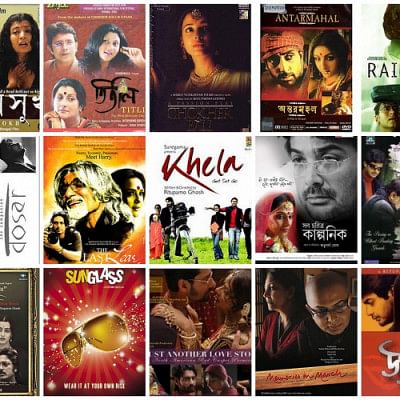
Through films like "Raincoat", Ghosh showed us the power of subtlety and restraint in conveying profound emotions, while, "Chitrangada" challenged societal norms and celebrated the journey of self-discovery and acceptance. In "Unishe April", they beautifully portrayed the dynamics of a mother-daughter relationship, using table conversations as a microcosm of the generational clash.
Rituparno Ghosh's films were not just cinematic experiences; they were mirrors reflecting the multifaceted nature of human connections. In a world where human relationships remain a timeless subject of fascination, Ghosh's works stand as a witness to the depth and complexity of the human experience, a legacy that continues to shine brightly even in their absence.

 For all latest news, follow The Daily Star's Google News channel.
For all latest news, follow The Daily Star's Google News channel. 





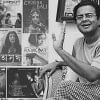


Comments